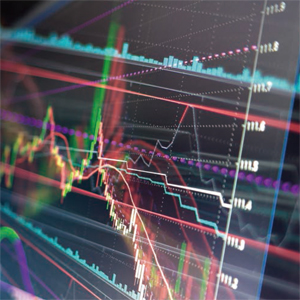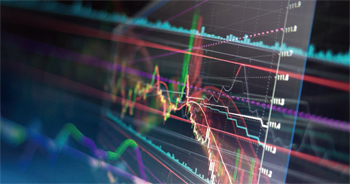05.2019 Life Guide
Overall Inspection of Global Economic Situation in 2019
Far Eastern International Bank / Jiang Zhihao


Half of 2019 has passed. However, the ever-changing political and economic environment has led to the emergence of "black swans" and "gray rhinos" in the financial market, which have an impact on investors'plans. In this issue, "Finance Column" will comprehensively analyze the global economic situation from the overall environment, trade, raw materials and currency, and provide practical financial advice for investors.
global economy
Compared with last year's neutral view of economic development in 2019, although the growth rate of major economies is still positive, the growth rate will slow down, especially in some major economies, which may have peaked. Observing the third and fourth quarters of 2018, global economic growth is facing downside risks, and the growth rate is not as expected. In its latest global economic outlook, the Organisation for Economic Cooperation and Development (OECD) forecasts that global growth will slow from 3.6% in 2018 to 3.3% in 2019 and 3.4% in 2020. Among them, owing to the weak economies of Germany, Italy, Britain and Turkey, the OECD's decline in the euro area in 2019 and 2020 was particularly significant.
In the major mature economies, the labor market situation in Europe and the United States has improved, and overall inflation is low. Although the effect of financial support in the United States is not good, some countries, such as France and Italy, have adopted financial subsidies for low-income families to support the growth of national real income and family expenditure, which have brought positive benefits to economic growth. However, policy uncertainties and declining confidence are likely to further drag down global investment and trade prospects, and the delay in Britain's exit from Europe has deepened doubts about European economic development.
In emerging markets, overall growth prospects remain stable, although individual countries are in different situations. Despite the new fiscal and tax reduction policies, China has been severely hit by financial market and trade pressures last year, and will still face a lot of adjustment and challenges in the future. Financial market tensions in India and Indonesia have eased, with strong investment, income growth and reform results supporting domestic demand growth in both countries. Brazil's economy is also recovering moderately, but Turkey's growth is still evident. Fatigued and weak.
According to Far Eastern International Bank Investment Consultant, although monetary policy in the world's major mature economies has shifted to neutrality or easing, growth rates in most mature economies continue to slow down, and growth trends in emerging economies vary, coupled with highly uncertain trade policies. Therefore, global economic growth still has downside risks.
Global trade
Uncertainty in trade policy remains an important factor affecting global investment, employment and consumption. Even if the United States and China reach a trade agreement quickly, it will not rule out that the United States may impose new restrictions on specific trade sensitive sectors such as automobiles. For example, if the United States imposes tariffs on European automobiles, the European economy will be severely hit. Because automobile exports account for about 10% of EU's total exports to the United States, and the automobile industry has important supply chain links within Europe, these effects will spread to European countries and companies, fearing to drag down Europe's rapidly declining trade status.
Price of raw materials
OPEC (Organization of Petroleum Exporting Countries) and non-OPEC resolutions have reduced crude oil production by 1.2 million barrels per day since January 2019. As a result, OPEC crude oil production in February has decreased to 30.549 million barrels per day, reaching a low level since 2014. OPEC also urges oil producers to avoid repeating the situation of excess production. This positive approach, combined with the blockade of Venezuela's and Iran's crude oil exports, will benefit the stabilization of oil prices. However, Far Eastern International Bank believes that, despite the slowdown in global supply, there is still limited room for oil prices to rise as economic growth slows and demand decreases. Therefore, the price of West Texas crude oil in 2019 should remain between $50 and $60 a barrel.
Gold prices have continued to pick up as a result of lower U.S. Treasury bond yields and rising market demand for hedging; Far Eastern International Bank reckons gold prices have a chance to reach the $1,350-1,400/ounce range this year.
Major Countries'Monetary Policies
The U.S. economy is weakening, and the Federal Reserve System, at its March meeting, predicted no rate hikes this year and that Quantitative Tightening (QT) would stop in September; Far Eastern International Bank believes that the United States has peaked after nine interest rate hikes and that the Federal Reserve System may resume its interest rate-cutting cycle in the next year. On the European side, the euro zone economy continued to be weak, inflation did not rise significantly, and some countries also had internal problems. Although the European Central Bank stopped quantitative easing (QE), it unexpectedly launched a new round of "TLTRO" easing policy in March. On the Chinese side, the People's Bank of China (PBC) is still leaning towards loose monetary policy in order to support China's declining economic growth. The new president also predicts that there may be room for a reduction in the benchmark in 2019.
Investment proposals
Overall, global stock market volatility is expected to be higher in 2019 than last year due to trade problems and slowing economic growth. The strongest U.S. stock market has experienced a strong rebound in Q1 in 2019, so it needs to be a little conservative; European stock market is forced by internal and external pressure, this year's trend is still not optimistic, if the trade situation stabilizes, European stock market will have a chance to turn around; to emerging stock market, the United States will stop raising interest rates and shrinking the table, which will benefit emerging market performance, but trade issues for specific regional stock markets. There are greater negative impacts. At present, the cost-benefit ratio of emerging markets has reached a more reasonable level, and the value of long-term investment appears.
In the bond market, the long-term bond yields declined under the double benefits of stopping interest rate hikes and shrinkage, which ushered in investment opportunities for medium-term and long-term bonds and high-grade investment-grade bonds in the United States. In the high-yield bonds, the slowdown of economic growth and corporate profits has a slight impact on the price of high-yield bonds, but high coupon yields are still the most important. In terms of emerging market bonds, the termination of monetary tightening policy in the United States will bring positive benefits to emerging market bonds, and reasonable evaluation also shows long-term investment value.
On the exchange market, although the Federal Reserve System stopped monetary tightening, the US dollar remained relatively strong under the trend of hedging; uncertainties in ECB policy and persistent political conflicts, coupled with a weak economy, were not conducive to the performance of the euro; and the depreciation pressure of emerging market currencies declined sharply after the US stopped raising interest rates and contracting its balance sheet. Far Eastern International Bank believes that the dollar remains strong in 2019 under the weakening and hedging trend of the euro.
In terms of investment targets, economic growth in the United States, the leading economy, has slowed down, and investors'risk tolerance will be reduced. Far Eastern International Bank believes that with market changes, low volatility and earnings composite bonds, multi-asset funds and high-rated overseas corporate bonds in the first half of 2019 can be used as the core of allocation, and respond flexibly to defensive assets such as public utilities, real estate and gold, and can also be matched with full-committee commodities that take into account both income and volatility risks. For highly conservative fixed deposit customers, they can also choose to deposit time deposits in banks, such as the project of Far Eastern International Bank, which will be launched in the second quarter of next year, with a maximum of 1.2% of the Taiwanese dollar.




















